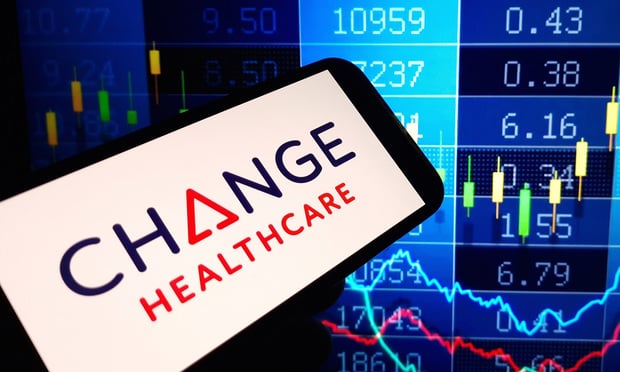The House voted, and health stocks shrugged.
|Hospital and health insurance stocks quickly bounced back afterthe U.S. House of Representatives voted for a bill that wouldrepeal large parts of Obamacare but faces a tough road in the Senate.In the minutes after the vote, the BI North America Hospitals Indexfell as much as 1.6 percent before reversing to close up 0.2percent.
|The Republican bill, formally known as the American Health Care Act, passed by a vote of217-213, would cut billions of dollars in health-care spending andresult in millions more Americans going without health insurance,according to the Congressional Budget Office.
|“Everyone knew it was coming, and it was priced in,” said AnaGupte, an analyst at Leerink Partners. “People do think it’ll getwatered down in the Senate.”
|Already, several key Senate Republicans said they will set aside theHouse health-care bill and write their own version. The party holdsa narrow 52-48 majority in the upper chamber.
|The insurance industry’s main lobby, America’s Health InsurancePlans, criticized the House bill, saying the Senate should boostsubsidies to help people afford insurance, and also ensure thatenough funding is provided to state Medicaid programs.
|“The American Health Care Act needs important improvements tobetter protect low- and moderate-income families who rely onMedicaid or buy their own coverage,” AHIP CEO Marilyn Tavenner saidin a statement. “The tax credit should be enhanced to reducepremiums and better meet the needs of people with low and modestincomes, are older, or live in areas with high health carecosts.”
|The Standard & Poor’s 500 Managed Health Care Index finishedthe day up 0.7 percent.
|The GOP bill would roll back an expansion of Medicaid, largelyto people above the poverty level and to childless adults, cuttingcoverage for about 14 million people by 2026. Those reductions willsave the government about $840 billion over 10 years, according toan analysis of an earlier version of the bill by the nonpartisanCongressional Budget Office. The CBO hasn’t made a final assessmentof the current version.
|The Medicaid rollback would have an impact on health insurers,especially those who provide Medicaid coverage to people under thelaw. But it would hit hospitals the hardest, since the AffordableCare Act’s subsidized expansion of insurance coverage has resultedin more paying customers.
|‘Step backward’
Michael Dowling, CEO of Northwell Health, New York’s largesthospital system, called the measure “a step backward.”
|“You’re going to have a lot more people without coverage,’ hesaid in an interview. “It’s going to put a lot more pressure onthose facilities that are already overburdened.”
|Lobby groups for hospitals, doctors, older Americans and othergroups have all issued strong statements of opposition.
|“We urge the Senate to restart and reset the discussion in amanner that provides coverage to those who need it and ensures thatthe most vulnerable are not left behind,” Rick Pollack, CEO of theAmerican Hospital Association, said in astatement.
|The bill would also hurt some people in Obamacare onnon-Medicaid plans. The measure would eliminate a rule requiringall Americans to have coverage, and would replace income-basedAffordable Care Act subsidies with tax credits based primarily onage that phase out for people with incomes above $75,000. Includingthe Medicaid cuts, about 24 million fewer people would be insuredin 2026.
|‘Draconian cuts’
“Such draconian cuts would destabilize state Medicaid programsand adversely affect our neediest citizens and the health plansthat provide access to their care,” Jeff Myers, president and CEOof Medicaid Health Plans of America, said in an email.
|Insurers will now look to the Senate, where they’d like to seechanges that would ensure that all Americans are able to affordcoverage.
|“The goal should be to have people covered by insurance that’squality and economical,” said Michael Neidorff, the chief executiveof Medicaid specialist Centene Corp. “We’re the wealthiest nationin the world, and people are entitled to health insurance.”
|Copyright 2018 Bloomberg. All rightsreserved. This material may not be published, broadcast, rewritten,or redistributed.
Complete your profile to continue reading and get FREE access to BenefitsPRO, part of your ALM digital membership.
Your access to unlimited BenefitsPRO content isn’t changing.
Once you are an ALM digital member, you’ll receive:
- Critical BenefitsPRO information including cutting edge post-reform success strategies, access to educational webcasts and videos, resources from industry leaders, and informative Newsletters.
- Exclusive discounts on ALM, BenefitsPRO magazine and BenefitsPRO.com events
- Access to other award-winning ALM websites including ThinkAdvisor.com and Law.com
Already have an account? Sign In
© 2024 ALM Global, LLC, All Rights Reserved. Request academic re-use from www.copyright.com. All other uses, submit a request to [email protected]. For more information visit Asset & Logo Licensing.








